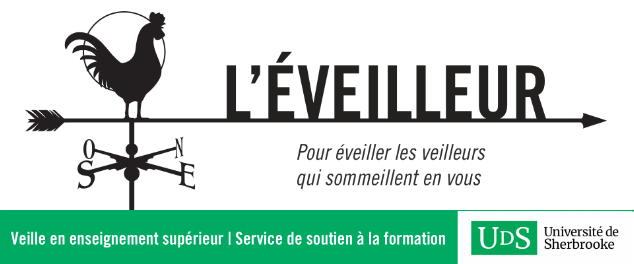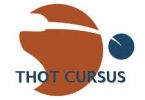Je tombe un peu par hasard sur cette bande-annonce:
Le film a eu un certain écho au Festival Sundance en début d’année. Son réalisateur, Andrew Rossi, y avait déjà présenté Page One: Inside the New York Times (2011) “That movie chronicled the disruption of the media industry as the New York Times struggled to adapt to a changing world of free news and disrespectful upstarts.” (Pomerantz, 2014)
Rossi avait l’impression qu’il existait aussi une histoire de disruption en formation supérieure. « L’idéal d’une éducation ‘transformative’ subsiste à certains endroits, mais est disparue ailleurs. » (paraphrase de l’entrevue avec Pomerantz) “I wanted to go on the ground in different universities and see if it’s true the experience many are having has become corrupt and in need of reform,” says Rossi. “I found that strikingly yes, it was true. There are some serious structural problems in higher education.” (Rossi, cité dans Pomerantz, 2014)
Au-delà des problèmes, c’est la perception même de l’université qui aurait changée:
« Rossi said there has also been a change in the public perception of higher education throughout the past several decades. Where education was once seen as a public good, enriching society and strengthening the economy, it is now seen primarily as a means for an individual to increase earning power.
“People started to think of college as exclusively a way to make more money, and it was around that time the student loan industry really started to grow aggressively,” he said. » (cité dans Wood, 2014)
Quelques statistiques évoquées dans le film frappent:
- En 2012, Bloomberg News rapportait que les frais de scolarités aux États-Unis avaient explosés de 1 120 % depuis 1978. C’est une augmentation plus élevée que l’indice des prix à la consommation, que les coûts de soins de santé, que la nourriture ou l’immobilier. Contrairement à d’autres formes de dettes, une faillite personnelle n’efface pas les dettes d’études aux États-Unis.
- En 2012, Associated Press rapportait que 53 % de récents diplômés étaient soit sans emploi ou travaillaient dans des employés pour lesquels ils étaient surqualifiés.
- 68 % des étudiants ne compléteront pas leur collège en quatre ans.
Devant ce marasme, Rossi évoque le mouvement Uncollege et affirme que pour certains étudiants le fait de choisir de ne pas aller à l’université est tout à fait logique. Cependant, les études supérieures demeurent un important outil de mobilité sociale:
«…[T]he film checks out the pros and cons of the UnCollege movement in San Francisco, in which students try to plot out curricula on their own,..» (McCarthy, 2014)
“We found smart, articulate 18 year olds who are assessing whether they need to go to college or if it makes more sense to pursue entrepreneurial goals. However, that hasn’t worked for everyone. In particular disadvantaged students. The power of the community college or state school to provide mobility is important.” (Rossi, cité dans Pomerantz, 2014)
Au chapitre des solutions possibles, le film examine les MOOC (en restant très critique), l’apprentissage hybride et la réduction du temps d’études:
« …Massive Open Online Courses program […] produced low learning rates but has furthered the idea of flexible hybrid programs in which mass lectures could be experienced online, opening up more time for smaller classes and meaningful professor-student interchange. » (McCarthy, 2014)
“[Rossi] said the most frequently cited suggestions for reform include shortening the time required for a degree from four to three years, but coupled with more structured internship and apprenticeship opportunities for students.” (Wood, 2014)
Comme le film dure 1 h 30, de nombreux questions ne peuvent y être couvertes, faute de temps (McCarthy, 2014):
- how much more money schools now spend on administrative costs rather than on faculty;
- the enormous endowments of some schools, beginning with Harvard;
- the content and usefulness of what’s actually taught;
- the significant and well-funded influx of foreign students, particularly from China and India, at top American universities;
- things the U.S. system could learn from the way things are done at institutions abroad.
Sources:
McCarthy, Todd, « Ivory Tower: Sundance Review », The Hollywood Reporter, 30 mai 2014
Pomerantz, Dorothy, “Is Higher Education Worth It? Documentary Filmmaker Andrew Rossi Investigates“, Forbes, 21 janvier 2014
Wood, Benjamin, « Sundance documentary ‘Ivory Tower’ asks if college is still worth it», Deseret News, 20 janvier 2014







Nicolas Grandmangin, directeur, section Information, recrutement et appui à la réussite étudiante au Bureau de la registraire me piste également sur _Berkeley_, un documentaire de Frédérick Wiseman (2013). Le film explore la question de comment se réinventer dans un contexte de coupures, puisqu’il s’agit d’une université publique californienne.
http://www.premiere.fr/film/At-Berkeley-Documentaire-3808243